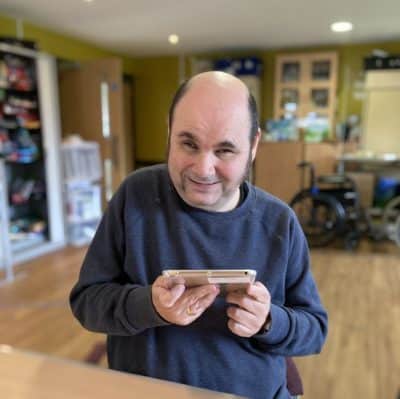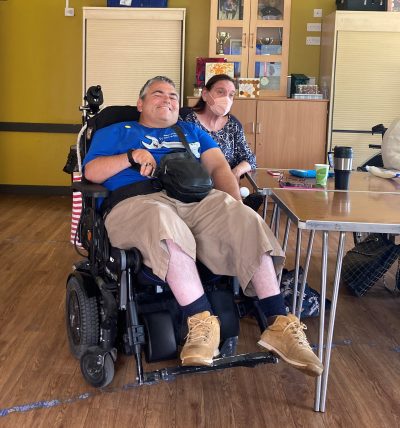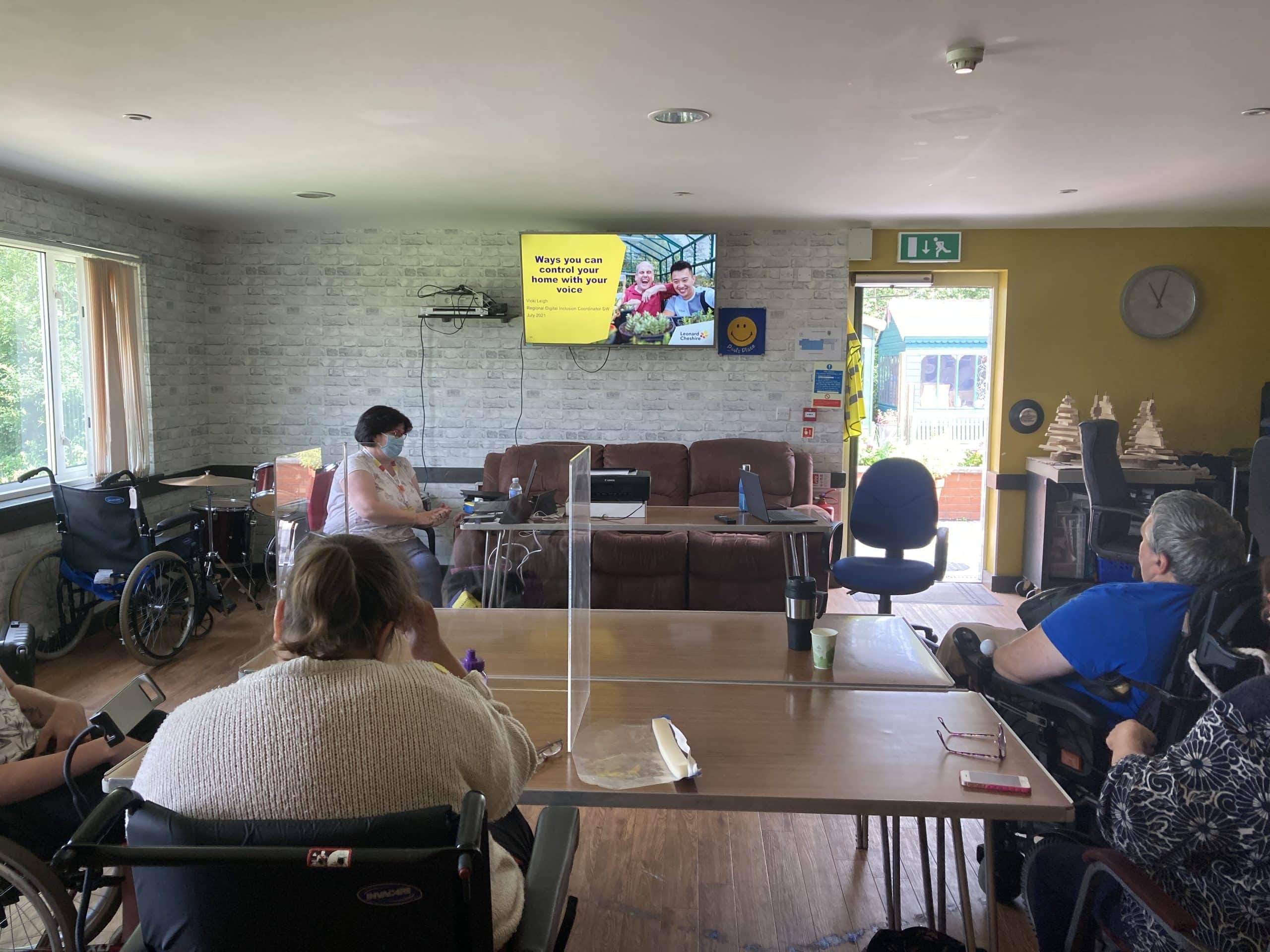Rotary Club Chipping Sodbury donates £500 to Paul’s Place at Home
A device borrowing scheme teaching people at Paul’s Place digital skills
Paul’s Place at Home aims to provide service users with enhanced digital skills to help them become more independent. They are teaching service users how to use a new platform to talk online and start video calls with others supported by the charity.
During the lockdown, it was technology that enabled everyone to stay in touch with friends and loved ones. For some, they did not have the technical knowledge, money, or equipment to participate online.
So why are disabled adults often left behind?
“There was so much help and support for him at school but as soon as he became 25, all of that stopped.” A Paul’s Place Carer shares about her son. This isn’t an isolated case, for many the support suddenly stops, leaving many stranded and highly reliant on Carers for every little task.
Paul’s Place is working with individuals to teach them the necessary skills to participate online, focusing on modern accessibility features.
Communications Officer Alex is working with Vicki from the charity Leonard Cheshire, hosting three series of sessions covering the use of smartphones, tablets and laptops. “Carers are already stretched thin providing all other aspects of support. Technology can be frustrating to use if you don’t feel confident with it. Therefore, having someone like myself and Vicki who uses technology every day, we can show service users just the bits they need to know.” Alex explains.
There is however still a barrier for some. Technology comes at a cost, which not all families can afford. Not only that but understanding what the right equipment is for an individual’s disability is also complex and no one wants to waste money on a device that might not be suitable. This is what Paul’s Place borrowing scheme is solving.
The charity’s borrowing scheme gives individuals 1-1 support on how to use a device, as well as the device itself. They can borrow a Paul’s Place iPad for one year, to begin with, and in that time learn how to use it, as well see if it’s right for them. This ensures they don’t spend their limited funds on a piece of technology that might not be suitable. By borrowing a device, it gives them time to save for their own device. Once the borrowing period is over, they can return the device to the next generation of service users.
It was a press release in the Winterbourne and Frampton Matters paper that introduced the Rotary Club of Chipping Sodbury to this project. “We are searching for funding to buy devices as part of the borrowing scheme. John reached out to me and I invited him to Paul’s Place to meet the individuals needing a device. Seeing the positive impact this project could have, he instantly wanted to help and put the proposal to the rest of the club,” says Alex. “We cannot thank him and the rest of the Rotary Club of Chipping Sodbury for their kind donation enough. Thanks to their funding this scheme has now begun to create a positive impact on people’s lives just as we hoped it would.”
Paul’s Place is still looking to fund further devices. This is just the start and there are others who could benefit from this device borrowing scheme. Thank you to all who have helped make it happen. Your support is helping disabled adults live life to the full.
Case Studies
Meet Andy
 For Andy, he is blind and wanted to see if he can use an iPad with the voiceover accessibility feature. Currently, he lives at home but wants to move onto independent living. This device now has the right tools so that he is able to have an email address, find information online, and talk with friends and family.
For Andy, he is blind and wanted to see if he can use an iPad with the voiceover accessibility feature. Currently, he lives at home but wants to move onto independent living. This device now has the right tools so that he is able to have an email address, find information online, and talk with friends and family.
“We often work with individuals where funds are limited or carers and families need extra support to better understand and become confident with technology.” Alex explains.
Meet Calvin
As someone with limited mobility and a speech impairment, his journey to using devices to live more independently will be a longer process.
Calvin has also been issued an iPad as this device is able to host the app called Voiceitt.
Voiceitt is a speech assistant app that can be used in either conversation mode or smart home mode.
It was released only a few months ago, making it the first of its kind.
The user is able to teach the app how they pronounce words. This app then either repeats the phrase for conversation or it connects to a smart assistant like Alexa.
Calvin has an Alexa but it does not understand him. It’s very frustrating for him but thanks to Voiceitt, that will all change. He will eventually be able to do things like “Alexa, play my rock playlist” or “Alexa, turn the TV on.”

